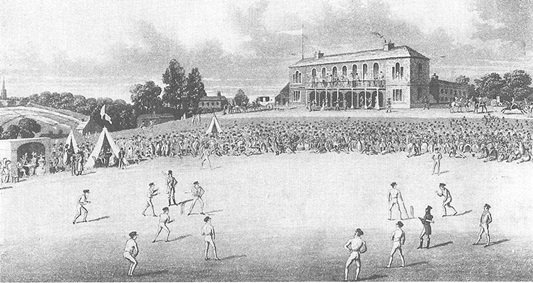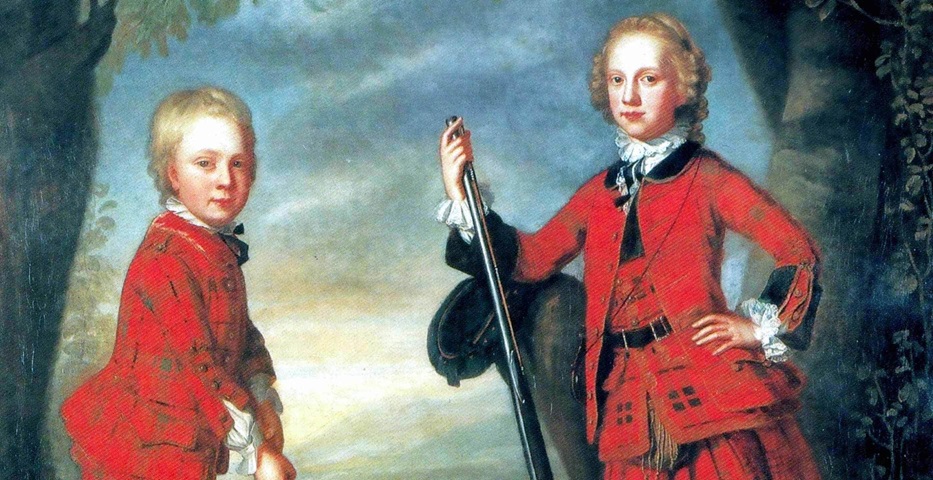Introduction
Golf is more than just a sport in the United Kingdom—it is a living tradition, a cultural treasure that began on the windswept links of Scotland and grew into one of the world’s most beloved games. From its humble medieval origins to hosting some of the most prestigious tournaments on the planet, the UK’s role in shaping golf is unmatched. The Royal and Ancient (R&A), The Open Championship, and iconic players like Nick Faldo and Rory McIlroy have ensured that golf in the UK is both a historical legacy and a modern spectacle.
In this article, we’ll trace the journey of golf in the UK, from its earliest records in the 15th century to its global influence today.
Early Roots of Golf (15th–17th Century)
The earliest written record of golf dates back to 1457 in Scotland, when King James II actually banned the game. Why? Because it distracted soldiers from practicing archery, which was vital for national defense. Despite this ban, golf’s popularity grew among the Scottish people. By the 16th century, it had even won royal approval—King James IV became the first recorded royal golfer.
The birthplace of modern golf is undoubtedly St Andrews. The Old Course at St Andrews, still revered as the ‘Home of Golf,’ became the standard against which courses worldwide are measured.
18th Century Growth and the Birth of Clubs

The 18th century was pivotal for UK golf. The first golf clubs were formed, and rules began to take shape. In 1744, the Honourable Company of Edinburgh Golfers (today based at Muirfield) codified the first official rules of golf. These were the foundations of the rules still followed globally today, albeit with modifications.
During this time, golf clubs like the Royal Burgess Golfing Society and the Royal Aberdeen Golf Club also emerged, marking the start of golf as an organized sport.
19th Century Expansion and Global Influence
The 19th century saw golf move beyond Scotland into England, Wales, and Ireland. The invention of the gutta-percha ball in the 1840s revolutionized the game by making it cheaper and more accessible. In 1860, the very first Open Championship (also called The British Open) was held at Prestwick Golf Club in Scotland—this remains the oldest major championship in golf history.
Women also began participating more actively, with clubs such as the Ladies’ Golf Club at St Andrews (founded in 1867) leading the way for female golfers.
20th Century: The Golden Era of UK Golf
The 20th century cemented the UK’s role as golf’s historical guardian. The Open Championship became the benchmark of greatness, attracting international players like Arnold Palmer and Jack Nicklaus, who helped globalize the sport. British champions such as Sir Henry Cotton and later Nick Faldo carried the UK flag proudly.
Post-World War II, golf also became a key television sport. The BBC played a massive role in this, bringing golf into homes and making legends out of players with iconic commentary.
21st Century: Modern UK Golf
Today, golf in the UK remains vibrant and deeply rooted in tradition. Players like Rory McIlroy, Justin Rose, and Georgia Hall represent the modern generation, balancing tradition with athleticism. The UK also hosts major tournaments such as The Open Championship, the Women’s British Open, and the BMW PGA Championship.
Technology, training methods, and youth programs are reshaping the game, ensuring that UK golf remains relevant in the modern sporting world.
Iconic UK Golf Courses
Here are some of the most historic and prestigious golf courses in the UK:
| Course | Location | Historical Significance |
| St Andrews (Old Course) | Scotland | Known as the ‘Home of Golf’ and oldest golf course |
| Muirfield | Scotland | One of the oldest clubs; hosts The Open regularly |
| Royal Troon | Scotland | Site of historic Open Championships |
| Royal Birkdale | England | Prestigious Open host, iconic links course |
| Wentworth Club | England | Home of the BMW PGA Championship |
| Royal St George’s | England | First English course to host The Open |
Cultural Impact of Golf in the UK

Golf in the UK is not just a sport; it is a cultural symbol. It reflects history, class structures, and even national pride. Tourism in Scotland and England thrives on golf, with visitors traveling worldwide to play on legendary courses. The game has also contributed to local economies, broadcasting revenues, and community development.
The Future of UK Golf
The future of UK golf looks promising. Efforts are being made to increase grassroots participation, especially among women and younger generations. Partnerships between schools, clubs, and organizations like The R&A aim to keep golf inclusive and forward-looking.
Digital media, streaming coverage, and initiatives like ‘Golf It!’ in Glasgow are introducing golf to newer audiences.
Conclusion
The history of UK golf is a story of resilience, tradition, and global influence. From medieval Scotland’s windswept links to modern Ryder Cup triumphs, the UK has shaped the very identity of golf. While technology and commercialization continue to evolve the game, the traditions rooted in St Andrews and The Open ensure that golf in the UK remains timeless.
For fans and players alike, golf in the UK is more than a sport—it is a heritage to be celebrated.
Also read: BBC Golf: More Than Just Highlights
